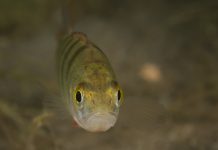By Alayna DeMartini | The Ohio State University College of Food, Agricultural, and Environmental Sciences
COLUMBUS, Ohio — With the rapid spread of the new coronavirus believed to have started in bats, some people might be genuinely concerned about their farm animals. Could the animals catch COVID-19?
The answer is murky.
While there have been no reported cases of pigs, horses, sheep, chickens, or cows getting COVID-19, their susceptibility to the respiratory disease has yet to be studied.
And though some pigs have been able to get COVID-19 in lab studies, it does not appear that they can catch or spread the virus very easily, said Scott Kenney, an assistant professor of veterinary preventive medicine at The Ohio State University College of Food, Agricultural, and Environmental Sciences (CFAES).
“There are a lot of unknowns,” Kenney said.
What is known is that ferrets, minks, domestic cats, and some dogs have become infected with COVID-19. But neither pets nor farm animals are thought to play significant roles in transmitting COVID-19.
Kenney, whose research focuses on viruses that spread from animals to people, is pursuing grants with colleagues to study whether various farm animals are susceptible to COVID-19. He will address the risk of animals catching or spreading COVID-19 during “Ask the Expert” presentations Sept. 22–24 at this year’s Farm Science Review, an all-virtual show sponsored by CFAES.
Kenney’s talks will be from 11:40 a.m. to noon on Sept. 22 and from 1:20 to 1:40 p.m. on both Sept. 23 and Sept. 24 at fsr.osu.edu.
For the first time in its nearly 60-year history, FSR will be exclusively virtual with livestreaming and prerecorded talks and demonstrations about the latest in research and farm technology. The show is free, but “visitors” must register before they can access all of the presentations.
The novel coronavirus that causes COVID-19 is but one of many viruses in recent years that started in animals, then mutated and adapted so that it could spread to people. Viruses, in general, have been increasingly shifting from animals to people, particularly in the developing world, as people cultivate more and more acres that were once isolated forests and come into contact with wildlife.
While people are currently far more likely to catch COVID-19 from other people—rather than from their farm animals or pets—it’s still important for farm workers to wear masks at work, Kenney said.
And if they are sick, farmers would do best to avoid being around their animals and have someone else work with them instead, if at all possible, he said.
“Instead of thinking, ‘Oh, my animals can’t catch my cold,’ it’s important to consider that these animals could breathe in your virus. It only takes a couple of mutations for these viruses to switch to another species,” Kenney said.
As a farmer moves from one building to another on a farm, washing off boots and using a hand sanitizer before leaving each building would help cut the risk of spreading illnesses, Kenney said.
“More frequent washing means they are less likely to carry germs from one pen to the next or home with them.”










